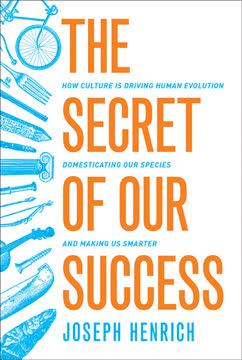Key Takeaways
1. Your Gut Microbes Are a Powerful Second Brain.
Just as scientists are learning more each day about the trillions of microbes living inside you, so they are also discovering that some of these microbes can actually commandeer your mind, control your tastes, and alter your moods.
A vast inner ecosystem. You are not a single entity, but a complex ecosystem hosting trillions of microbes, primarily in your gut. This community, your microbiota, is like another organ, outnumbering your own cells and genes significantly. It ferments your food, produces vitamins, and defends against pathogens.
An independent nervous system. Your gut has its own intricate nervous system, often called the "second brain," which can operate independently of your central nervous system. This enteric nervous system manages digestion and communicates constantly with your brain, influencing everything from peristalsis to nutrient absorption.
Microbes influence behavior. This microbial community isn't just passively residing within you; it actively communicates with both your first and second brains. Through this communication, microbes can influence your cravings, moods, and even decisions, suggesting a surprising level of control over your behavior.
2. The Gut-Brain Axis Is a Two-Way Communication Highway.
Accumulating data now indicate that the gut microbiota communicates with the central nervous system (CNS) through neural, immune, and endocrine pathways—and thereby influences brain function and behavior.
Multiple communication channels. The gut and brain are in constant dialogue via the gut-brain axis, utilizing three main systems: the nervous system (fast, point-to-point via nerves like the vagus), the immune system (medium speed via signaling molecules like cytokines), and the endocrine system (slow, systemic via hormones like cortisol).
Bidirectional influence. This axis is a two-way street. Not only does the gut influence the brain (e.g., microbial signals affecting mood), but the brain also influences the gut (e.g., stress altering gut motility and microbial composition). This creates feedback loops that can be either virtuous or vicious.
Impact on health and disease. Disruptions in this communication axis, often caused by an unbalanced microbiota (dysbiosis), are increasingly linked to various health issues, including:
- Mood disorders (anxiety, depression)
- Gastrointestinal problems (IBS, IBD)
- Metabolic conditions (obesity, diabetes)
- Neurological disorders (Parkinson's, autism)
3. Microbes Influence Mood Through Chemical Signals.
In our studies, we have found that many bacteria are capable of producing some of the most important neurotransmitters in the human brain, like serotonin, dopamine, and GABA.
Microbial neurochemistry. Gut bacteria produce a wide array of chemicals, including neurotransmitters identical to those used by your brain (serotonin, dopamine, GABA), short-chain fatty acids (SCFAs), hormones, and cytokines. These molecules are the language of the gut-brain axis.
Signaling the brain. While most microbial neurotransmitters may not cross the blood-brain barrier directly, they can influence brain function by:
- Stimulating nerve endings in the gut (like the vagus nerve)
- Interacting with immune cells to release cytokines that reach the brain
- Producing SCFAs that can cross the BBB and affect brain cells
Impact on mood centers. These microbial signals can influence key mood centers in the brain, such as the locus ceruleus (alertness), raphe nuclei (serotonin production), and ventral tegmental area (dopamine/reward). By modulating these pathways, gut microbes can directly impact feelings of anxiety, depression, and well-being.
4. Early Life Shapes Your Microbiota and Brain Development.
Babies need gut bacteria to develop properly.
Microbial inheritance. Your relationship with microbes begins at or even before birth, receiving a microbial starter kit primarily from your mother during passage through the birth canal and via breast milk. This initial colonization is crucial for establishing your foundational microbiota.
Immune system education. Early microbial exposure is vital for training your developing immune system. Commensal bacteria teach immune cells, like regulatory T cells, to tolerate beneficial microbes and distinguish them from harmful pathogens, preventing chronic inflammation later in life.
Brain wiring depends on microbes. Studies in germ-free mice show that the absence of microbes during critical early developmental windows (before weaning) leads to:
- Abnormal amygdala development (linked to anxiety)
- Altered hippocampal structure (linked to memory/emotion)
- Changes in myelination in the prefrontal cortex (linked to stress response, depression, autism)
These findings highlight the profound and lasting impact of early microbial exposure on brain structure and function.
5. Modern Lifestyle Disrupts Gut Health and Mental Well-being.
It is possible that this microbial shift underpins the swift and otherwise inexplicable increases in obesity, autoimmune diseases, depression, anxiety, and many other health problems that we see today.
The cost of convenience. The modern Western lifestyle, characterized by highly processed foods, overuse of broad-spectrum antibiotics, excessive hygiene, and sedentary habits, is fundamentally altering our ancestral microbiota. This disruption, or dysbiosis, is linked to a rise in chronic diseases.
Antibiotics' double-edged sword. While lifesaving, broad-spectrum antibiotics indiscriminately kill beneficial gut bacteria along with pathogens. This can decimate microbial diversity, leaving the gut vulnerable to opportunistic pathogens and potentially causing long-term dysbiosis and associated health issues, including anxiety and depression.
Stress and diet impacts. Chronic stress triggers fight-or-flight responses that suppress the immune system and favor the growth of certain pathogens, further contributing to dysbiosis. Diets high in sugar and saturated fat, and low in fiber, starve beneficial microbes while feeding less desirable ones, creating an inflammatory environment that negatively impacts both physical and mental health.
6. Diet Is Your Primary Tool to Control Your Microbiota.
The diet you choose, as you will learn, goes far to determine which bacteria you end up living with.
Food shapes your ecosystem. Your diet is the most powerful lever you have to influence the composition and activity of your gut microbiota. Different microbes thrive on different foods, so what you eat directly determines which species flourish in your gut.
Starve the bad, feed the good. A diet high in processed foods, sugar, and unhealthy fats feeds microbes associated with inflammation and dysbiosis. Conversely, a diet rich in fiber, vegetables, fruits, and fermented foods nourishes beneficial psychobiotic species like Bifidobacteria and Lactobacilli.
Simple dietary shifts. Making conscious food choices can rapidly alter your microbial landscape. Prioritizing whole, unprocessed foods over junk food is the foundational step. Specific dietary changes include:
- Increasing fiber intake from diverse plant sources
- Minimizing added sugars and refined carbohydrates
- Incorporating healthy fats like omega-3s
- Reducing consumption of processed meats and unhealthy fats
These changes can help rebalance your microbiota, reduce inflammation, and improve your mood.
7. Fiber and Fermented Foods Are Essential Psychobiotics.
Eating the right kinds of foods has always been and still is the best way to achieve and maintain a healthy gut.
Fiber: Fuel for friends. Dietary fiber, indigestible by human enzymes, is the primary food source for many beneficial gut bacteria, particularly those in the colon. These microbes ferment fiber into beneficial short-chain fatty acids (SCFAs) like butyrate, which nourish gut cells, reduce inflammation, and can positively impact brain function and mood.
Fermented foods: Live cultures. Fermented foods like yogurt, kefir, sauerkraut, kimchi, and pickles contain live probiotic cultures. Consuming these foods introduces beneficial microbes into your digestive system, supplementing your existing microbiota and contributing to gut health and microbial diversity.
Natural psychobiotic sources. Incorporating a variety of fiber-rich vegetables (artichokes, leeks, garlic, beans) and traditionally fermented foods into your diet provides a natural source of both prebiotics (fiber) and probiotics (live microbes). This synergistic approach is often more effective than relying solely on supplements.
8. Probiotic Supplements Offer Targeted Support (But Choose Wisely).
Today an abundance of probiotic products are on the market. Not all have been proven to be effective, and not all are psychobiotics—a term coined by Ted Dinan to identify probiotics that improve your mood.
Supplements as adjuncts. While diet is paramount, probiotic supplements can offer targeted support by introducing specific strains of beneficial bacteria. Psychobiotics are a subset of probiotics specifically studied for their positive effects on mental health, such as reducing anxiety or depression.
Strain specificity matters. Not all probiotics are created equal; effects are often strain-specific. Research highlights particular strains like Bifidobacterium longum (R0175, 1714, 35624), Bifidobacterium breve (1205), and Lactobacillus rhamnosus (JB-1, GG) for their psychobiotic potential.
Informed consumer choices. The supplement market is largely unregulated regarding efficacy. Look for products that:
- List specific strains (e.g., Lactobacillus acidophilus ATCC 4356)
- Provide dosage in Colony-Forming Units (CFUs), typically billions
- Have scientific studies supporting their claims (check for randomized, controlled trials)
- Adhere to Good Manufacturing Practices (GMP)
Supplements should complement, not replace, a healthy diet rich in fiber and fermented foods.
9. Gut Dysbiosis Is Linked to Many Major Diseases and Mental Distress.
Depression accompanies many of these diseases, including Parkinson’s, Alzheimer’s, irritable bowel syndrome (IBS), inflammatory bowel disease (IBD), obesity, psoriasis, arthritis, multiple sclerosis (MS), autism, and many more.
Comorbidity is common. Depression and anxiety frequently co-occur with a wide range of physical illnesses. This is not merely a psychological response to being sick; mounting evidence suggests that gut dysbiosis and the resulting inflammation are often underlying factors contributing to both the physical disease and the mental distress.
Examples of gut-brain disease links:
- IBS/IBD: Chronic gut inflammation strongly correlates with anxiety and depression.
- Obesity/Diabetes: Altered gut microbiota contributes to metabolic dysfunction and increases risk for mood disorders.
- Parkinson's: Protein aggregates linked to PD may start in the gut and travel to the brain via the vagus nerve, often preceded by constipation and depression.
- Autism: Many individuals with ASD have significant gut issues and altered microbiotas, and some studies suggest microbial interventions can impact behavior.
Addressing gut health through diet and psychobiotics offers a promising avenue for mitigating symptoms and improving mood across these diverse conditions.
10. The Future Holds Promise for Targeted Microbial Therapies.
Psychobiotics are revolutionizing psychiatry, and they have the potential to revolutionize health care as well.
Beyond broad strokes. Future therapies aim for more precise microbial interventions than current broad-spectrum antibiotics or general probiotics. This includes:
- Targeted antibiotics (Bacteriocins): Naturally occurring microbial toxins that kill specific pathogens while sparing beneficial bacteria.
- Phage therapy: Using viruses that infect and kill only specific bacteria, offering a highly targeted approach to eliminate problematic species.
Engineered microbes. Synthetic biology is developing genetically engineered bacteria designed to act as tiny doctors in the gut. These microbes could:
- Detect signs of dysbiosis or disease
- Produce therapeutic molecules (like neurotransmitters or anti-inflammatory compounds) locally
- Potentially treat conditions like obesity, anxiety, and even type 1 diabetes.
Harnessing host-microbe interactions. Research into microRNAs (miRNAs) produced by gut cells shows they can directly control bacterial growth and gene expression. Understanding and manipulating these host-produced molecules could offer a novel way to shape the microbiota for therapeutic benefit, including improving mental health.
Last updated:
Review Summary
The Psychobiotic Revolution explores the connection between gut health and mental well-being, offering insights into how microbes influence mood and overall health. Readers praise its accessible presentation of complex scientific concepts, though some note it occasionally makes broad claims without sufficient evidence. The book covers topics like the gut-brain axis, the impact of diet on microbiota, and potential psychobiotic treatments. While technical at times, it provides valuable information on improving mental and physical health through gut microbiome management, making it relevant for both professionals and general readers interested in this emerging field.
Similar Books










Download PDF
Download EPUB
.epub digital book format is ideal for reading ebooks on phones, tablets, and e-readers.




